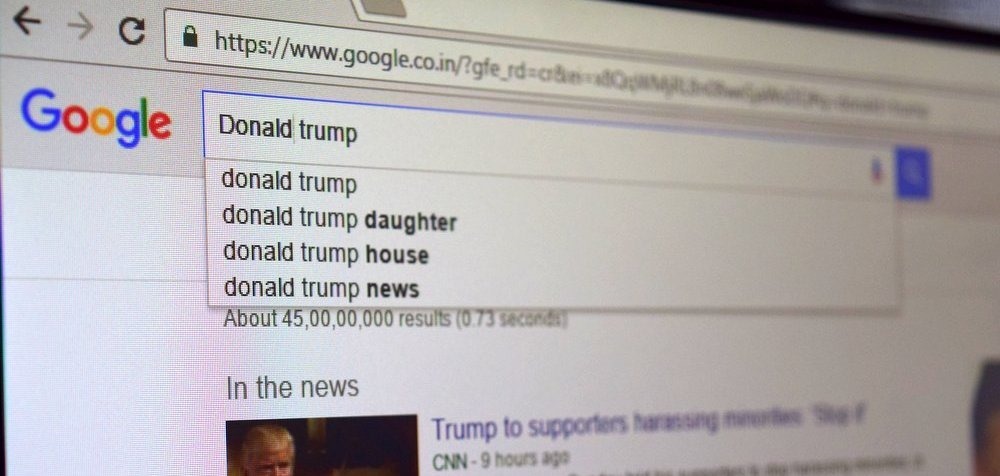Google Decides to Restrict Websites from Spreading Malicious & Fake Information; Facebook Denies Involvement in Trump’s Win

The recent Presidential Elections in the US have made everyone realize one thing – all forecasts and predictions were false and inaccurate. Starting with Brexit, the second biggest impact to the world came only a week back when Donald Trump, a Republican, was announced the President of the U.S.
However, a lot of social media experts, critics and consumers have taken to these media to protest against the spread of malicious false information that helped Donald Trump win. Donald Trump, for most of the people on the internet, is not a deserving candidate, leaving aside his personal views, and Facebook, Twitter and Google have played a big part in making him win.
Of course, in this day of excessive news and information on the internet, users are bound to get influenced and then vote accordingly. Behavioral characters have been found to be the most predictive of Trump’s win, which is still a shock to most nations. Google wants to ensure websites don’t interpret news wrongly.
To take a stronger control over this and to not let its customers complain, Google has decided to restrict advertisements on websites that promote wrong information or display ads that may contain false content.
“Moving forward, we will restrict ad serving on pages that misrepresent, misstate, or conceal information about the publisher, the publisher’s content, or the primary purpose of the web property,” Google said in a statement.
The sample set on the internet is one that is most liberal of the views, most open to a free economy and ideas and this has led to a lot of backlash. There had been information doing the rounds that Hillary was leading, when actually Trump was far ahead. This pushes republicans to rethink their candidate and change their minds.
Facebook’s involvement and its denial
Facebook has received a lot of backlash for posting incorrect information on its ‘trending’ feed, which has let to Donald Trump’s win. While it could be true and there is no way to check that, Facebook has denied any such claims.
The company continues to say that it is simply serving its viewers and providing them a platform to share news with others. Of course with US Elections being the hot topic, most of the content on the website was on that and the algorithms Facebook has, could have become overused to display information that they could find of Trump.
“Of all the content on Facebook, more than 99 per cent of what people see is authentic. Only a very small amount is fake news and hoaxes. The hoaxes that do exist are not limited to one partisan view, or even to politics,” Facebook CEO Mark Zuckerberg said to rubbish all the claims.
The company had also promised to improve its click-bait news articles by changing the algorithms, but it seems that none of them worked very well. Facebook also denies that all the content on the news feed was 99% true and it could not have influenced the Trump supporters.
Trump, on the other hand, has openly said that Facebook, Twitter and Google combined have contributed to his success, which is something that has angered the rest of the world. While we should also take his words with a pinch of salt, we cannot undermine the power of social media.
Google has not outlined the modifications in its algorithm to tackle fake news, but has promised that false information will be treated in the right manner, and will keep updating its logic to catch illicit publishers.
Do you think the three tech giants contributed to Trump’s win? Let us know of your views in the comments below.
Source: Reuters
